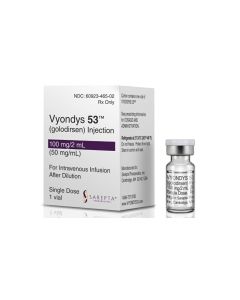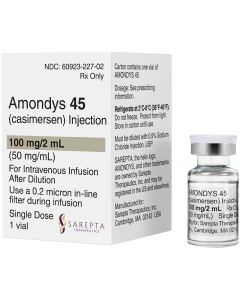Duchenne Muscular Dystrophy access options
Duchenne muscular dystrophy (DMD) is a genetic neuromuscular disorder characterised by progressive muscle weakness and wasting. It is caused by mutations in the dystrophin gene on the X-chromosome which result in an absence of the dystrophin protein, a protein that helps keep muscle cells intact. It is the most prevalent neuromuscular disorder, affecting up to 1 out of 3,600 male births worldwide. Symptoms usually appear during in early childhood, between the ages 3 and 5. The disease primarily affects boys, but can also affect girls as well, although this is quite rare. The standard therapy that can delay DMD progression is based on corticosteroids. The two mainly used in DMD are deflazacort and prednisone/prednisolone.







